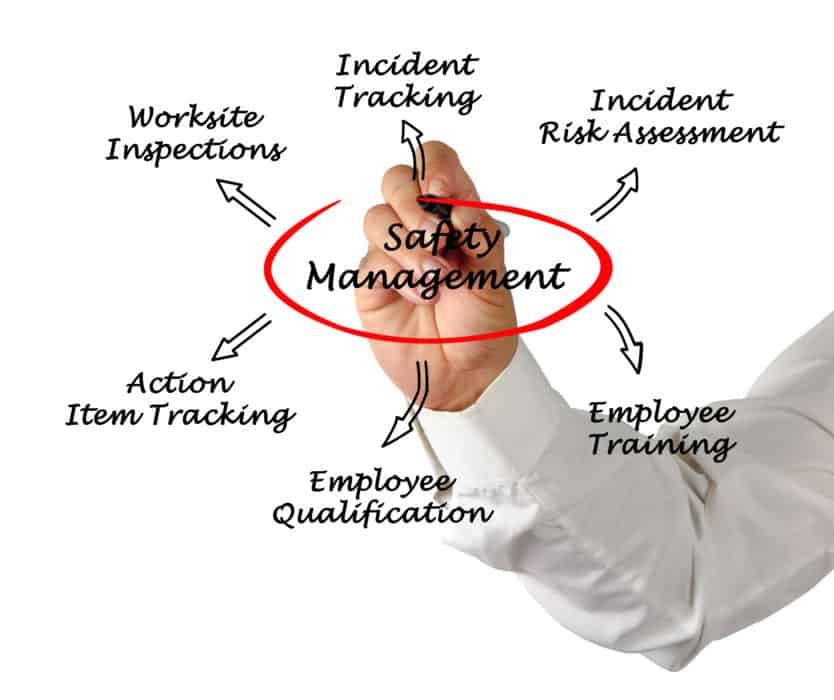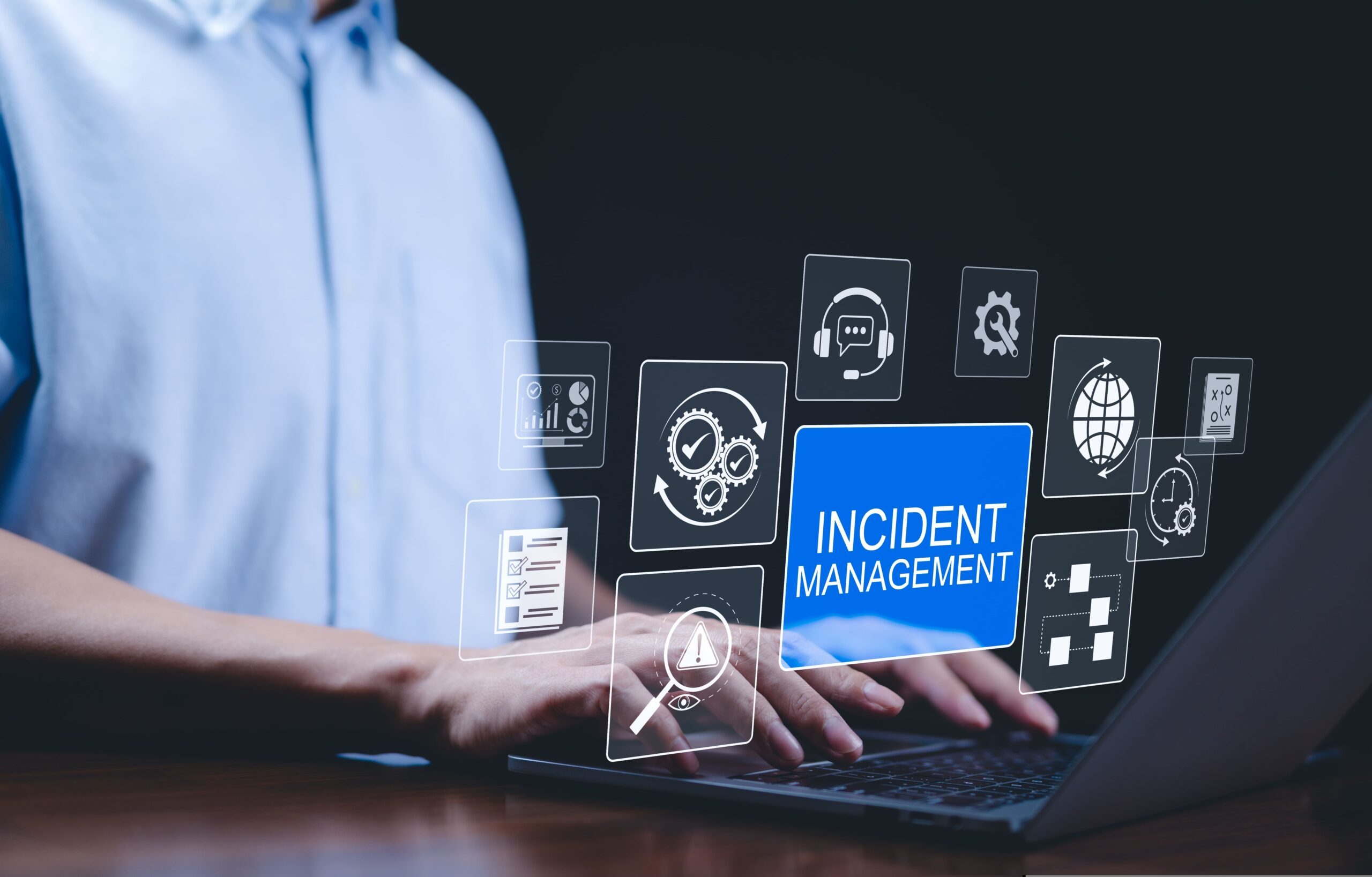Incident management and incident investigations, while not typically welcome due to their nature of something having gone wrong, are a necessary tool in any EHS professional‘s toolbelt. They have been getting a bad reputation lately and pushed to ‘lagging indicator’ status. While not a great measure of safety overall, incidents do serve a purpose. This article, as well as several in a series centered around incident management, will seek to uncover the ways in which this aspect of your overall safety management system can drive positivity and improvement.
The first question that must be addressed is ‘Why do we do incident investigations?’.
There is certainly the regulatory requirement that makes them all but indispensable. OSHA has a mandate that employers investigate all incidents in which a worker was hurt. While necessary, a legal requirement should not be the only compelling reason we should investigate an incident.
Besides a legal compulsion, what should be the driving force behind conducting incident investigations? The answer is quite simple – to learn and improve. Even OSHA has shared an interesting take on investigating incidents by stating that the process provides employers and workers the opportunity to identify hazards in their operations and shortcomings in their safety and health programs. According to OSHA, incident investigations allow companies and workers to identify and implement corrective actions necessary to prevent future incidents (OSHA, n.d.). A desire to learn and improve should influence how management approaches an investigation and how workers are viewed in the process.
Shared here are some interesting excerpts from fellow safety professionals on the guiding foundational purpose of learning from incidents.
Nathan Braymen, #RedBeard, Safety, isitrecordable.com, USMC
The goal of an incident investigation should be learning. Communication is the cornerstone of learning and if there is any fear at all in those being interviewed, they are likely not to share all details of what occurred. Ensuring no discipline/punishment is issued as part of the investigation is key to eliminate the communication barrier of fear.
Ben R. Brown Jr., MS, CSP, SMS – HSSE Consultant, Global GeoSafety
A learning philosophy can be applied to an organization’s approach to HSE. There is an excellent article by Dave Payne VP of HSE at Chevron the crux of which is a paradigm shift towards ‘Learn and improve’, versus ‘Blame and Punishment’: Learning, more than Punishment, Drives Safety.
I see human factors (HF) listed as a theme in Dave Payne’s article. I like this excerpt in particular: “With the incorporation of human performance principles into the oil and gas industry, we have come to recognize several critical truths: Almost everyone comes to work with positive intent; people make mistakes; work as envisioned is rarely the same as how the work is done; and, finally, while incidents are triggered by individual behaviors, they are the result of system failures.” (Payne, 2019).
Norman Ritchie, Director, vPSI Group, LLC
Certainly, incident investigations provide a learning opportunity. Unfortunately, however, that opportunity is usually missed. We [safety professionals] have been measuring the quality of incident investigations for almost 20 years and producing related leading KPIs. Our very large dataset demonstrates that approximately 75% of actions generated by investigations have no impact on the probability of the unplanned event repeating.
As might be expected, this is a very uncomfortable insight that does not make us very popular in most safety departments who think they have been doing a grand job (cognitive bias much?). Few are willing to swallow the red pill. In defense of the HSE folks, it is worth noting is that this phenomenon is not limited to unplanned events that attract the “safety” label but is true for many different classifications of events. It seems to be an organizational issue. Therefore, we strip off the harm/consequences of an incident and analyze the unplanned event. Any given unplanned event can give rise to an almost infinite spectrum of outcomes.
Ronald Martín Albarracín Riega, Supervisor SSOMA, Komatsu – Mitsui
We should reward the reportability of near misses (incidents without harm) of workers. They should not be seen as a failure of the system, but rather as learning from the organization.
Geoffrey Celander, CSP, Safety Professional, Facility Safety Consulting
It is just another data feed into the safety management system to be used for learning. I have seen a lot of good discoveries and changes come out of an investigation. One of the big ones I have seen is confusing and conflicting procedures, usually driven by how work is imagined versus how it is done. Those are the ones that sting for me, it is like the operations team was set up for failure due to poorly conceived procedures and training. Learning from that: do not write any new procedure without the operations team’s involvement.
Tamara Parris, Women in Safety Podcast
For us, the key was doing Incident management so we could identify hazards, understand, and correct them to prevent any future re-occurrence that might result in an injury or more. It became part of our work culture to report anything seen, then assess the level of risk it presented. The downfall was when new management came in who were not used to this safety reporting style. They would see it as the employees just complaining and not doing their work. This is where the support of the General Manager or Regional Level Manager is very important to counter this mindset.
Incident management can be a preventative learning tool, to mitigate known hazards before they turn into a larger incident or injury. People ignoring unsafe conditions/actions is a big issue as they are the warning signs.
Shifting why investigations are conducted from ‘we have to’ into a truer purpose of ‘learning and improving’ is the first of several foundational shifts necessary to support robust operational learning. Bob Edwards, in his article “The Power of Operational Learning” puts it best: Operational learning is about the complexity of work, the adaptive nature of workers attempting to complete their tasks and about how failure and success really occur in the field where the work is completed, not how we think it occurs (Edwards, 2015). As organizations begin to learn from workers and seek to better understand, improvements can be recognized and realized.
Incident management and incident investigations are a staple of an overall safety management system. They should continue, certainly, to provide insights and valuable lessons learned to shape thought and decision making. However, the process in which they are done should undergo scrutiny to ensure an organization is learning and improving instead of blaming and punishing.
For more details: Click here & Contact SafetyStratus Now.
AUTHOR BIO

Cary comes to the SafetyStratus team as the Vice President of Operations with almost 30 years of experience in several different industries. He began his career in the United States Navy’s nuclear power program. From there he transitioned into the public sector as an Environmental, Health & Safety Manager in the utility industry. After almost thirteen years, he transitioned into the construction sector as a Safety Director at a large, international construction company. Most recently he held the position of Manager of Professional Services at a safety software company, overseeing the customer success, implementation, and process consulting aspects of the services team.
At SafetyStratus, he is focused on helping achieve the company’s vision of “Saving lives and the environment by successfully integrating knowledgeable people, sustainable processes, and unparalleled technology”.
Follow @cary: Linkedin | Twitter
Bibliography
Edwards, B. (2015, July 08). The Power of Operational Learning. Retrieved February 26, 2021, from https://www.ehstoday.com/safety-leadership/article/21917011/the-power-of-operational-learning#:~:text=Operational%20learning%2C%20on%20the%20other,how%20we%20think%20it%20occurs.
Occupational Health & Safety Administration. (n.d.). Incident Investigation – Overview. https://www.osha.gov/incident-investigation#:%7E:text=Investigating%20a%20worksite%20incident%2D%20a,their%20safety%20and%20health%20programs.
Payne, D. (2019, November 4). Learning, More Than Punishment, Drives Safety. Journal of Petroleum Technology. https://jpt.spe.org/column-learning-more-than-punishment-drives-safety



